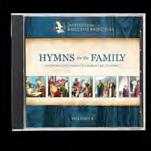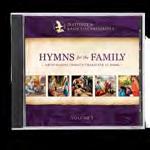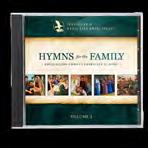Discretion
The ability to avoid words, actions, and attitudes that could result in undesirable consequences

PROVERBS 22:3
ELIHU CAREFULLY ADDRESSES HIS ELDERS


“Elihu also proceeded, and said, Suffer me a little, and I will shew thee that I have yet to speak on God’s behalf. I will fetch my knowledge from afar, and will ascribe righteousness to my Maker.”
JOB 36:1–3
“A prudent man foreseeth the evil, and hideth himself: but the simple pass on, and are punished.”
BIBLICAL CHARACTER ILLUSTRATED CURRICULUM Illustrated in Scripture, Illustrated in Life
Exhorter
SPIRITUAL GIFT:
CONTENTS
Biblical Character Illustrated Curriculum
Illustrated in Scripture
2 Introduction
2 How to Use This Curriculum
3 Goals and Objectives
4 Character Quality Overview
5 Discretion in Scripture
6 Lesson 1: Choose My Words Carefully
7 Bible Story: Elihu Carefully Addresses His Elders
8 Memory Verse: Proverbs 25:11
9 Activity: The Beauty of Kind Words
10 Lesson 2: Choose the Wise Path
11 Bible Story: A Young King Makes a Choice
12 Memory Verse: Proverbs 22:3
13 Activity: Make Your Choice!
14 Lesson 3: Control My Emotions
15 Bible Story: Moses’ Rash Sin Brings Severe Consequences
16 Memory Verse: James 1:19–20
17 Activity: Input-Output
18 Lesson 4: Turn Down Any Invitation to Do Wrong
19 Bible Story: Joseph’s Narrow Escape
20 Memory Verse: Genesis 39:9b
21 Activity: Word Search
22 Additional Resources
22 Discretion GEMs






23 Journal and GEM Mine
24 Hymn Sheet Music: “Lord, Speak to Me”
25 Hymn History: “Lord, Speak to Me”
by Frances Havergal
26 Explaining Salvation to a Child
27 Reproducible Coloring Pages
31 Recommended Resources


“The testimony of the Lord is sure, making wise the simple” (Psalm 19:7b). Biblical character is illustrated in this curriculum through both artwork and lessons from the lives of people in God’s Word. We most often benefit from the positive examples of faithful men and women. “For whatsoever things were written aforetime were written for our learning, that we through patience and comfort of the scriptures might have hope” (Romans 15:4). There were also people in the Bible who are representations of poor character, and we can learn from their lives as well. “Now these things were our examples, to the intent we should not lust after evil things, as they also lusted” (I Corinthians 10:6). We would be wise to learn from the testimonies God has given us in Scripture.
Illustrated in Life
“Faith cometh by hearing, and hearing by the word of God” (Romans 10:17). Hearing the Word of God causes us to grow in faith. This curriculum offers many practical applications of God’s Word to everyday life. “But be ye doers of the word, and not hearers only” (James 1:22). As God enables us to act in faith, our lives as believers will illustrate His character to others.
The character
of
God is illustrated in Scripture. May it also be illustrated in our lives.
Character Quality Overview
What Is Discretion?
Read aloud and discuss what discretion means and how it applies to life.
The operational definition of discretion is “the ability to avoid words, actions, and attitudes which could result in undesirable consequences.” A person practices discretion by thoughtfully considering the possible consequences before taking any action. He values silence, both to allow himself to think before he speaks, and then after he has spoken, to allow the hearer to consider his message. He is cautious and thoughtful, because he knows careless actions often hurt people and damage relationships. He wants to help others, and he realizes others may be influenced by his choice of activities, music, and entertainment. A discreet person does not laugh at or make jokes at the expense of others. Using discretion, he dresses modestly in consideration of others, not wanting his attire to be a stumbling block for them. He knows that, as a Christian, his choices can bring honor or disgrace to Christ’s name. Acting with discretion preserves and protects him and prevents unwanted problems. (See Proverbs 2:10–12, 16, 20.)
The opposite of discretion is simplemindedness. A simpleminded person is not attentive to what is going on around him. Sometimes he is oblivious to who is speaking, what is being said, or what is happening! Ignoring his surroundings can bring trouble. (See Proverbs 22:3.) Lacking caution and care can lead to rash, foolhardy,
and reckless behavior. However, Proverbs is filled with insights on how to grow in wisdom, prudence, and discretion. God’s Word promises to give “subtilty to the simple, to the young man knowledge and discretion” (Proverbs 1:4). As you apply the wisdom found in Proverbs and learn from experience, God will enable you to rightly discern what words, actions, and attitudes should be avoided.
How do we know which choices are best? In addition to finding wisdom in God’s Word, we also learn wise choices as the Holy Spirit guides us in each situation. Considering possible results is helpful in discerning appropriate behavior. These questions can help you think ahead as to the best course of action:


If I do this or say that, what might happen? What would I need to do next?
An attractive outward appearance will never compensate for a lack of discretion. “As a jewel of gold in a swine’s snout, so is a fair woman which is without discretion” (Proverbs 11:22).
How could these words be misunderstood?
How might others be affected by my attitude?

Would this be an appropriate time to speak, or would it be better for me to remain silent?
A person with discretion is sensitive to the Lord’s leading, even when it means doing nothing! He asks the Lord for wisdom to know how to respond with the right words, proper actions, and Godly attitudes.

4
When pursued, the fox constantly evaluates his direction and makes strategic changes to avoid the undesirable consequence of capture!
Discretion in Scripture
As you read and study God’s Word, you will see Who He is! Be willing to be changed by Him so Christ can be seen through your life and others will glorify God.
The Character of God

We see examples of discretion in God’s character in the following ways:
• God carefully chose His words with Adam and Eve, leading them to admit their sin.
(See Genesis 3:9–13.)
• God has provided a way for us to avoid undesirable consequences.
(See John 3:15–16, Psalm 19:7–11.)

DISCRETION KEY VERSE
“A prudent man foreseeth the evil, and hideth himself: but the simple pass on, and are punished.” PROVERBS 22:3
Discretion in My Life
Now let’s examine some ways God wants us to live out discretion daily.
• Do I ask God to guard my words?
(See Psalm 141:3.)
• How important is it to watch what I say?
(See Proverbs 13:3.)
• Is it prudent to believe everything I hear? What should I do instead?
• Jesus discerned the Pharisees’ deception and prudently answered their questions with a question.
(See Mark 12:13–17.)
• Jesus recognized that silence was the only appropriate response when He stood before Herod for questioning.
(See Luke 23:8–9.)
• Jesus used discretion to calmly defuse a tense situation.
(See John 8:3–11.)
• The Holy Spirit helps believers to understand the deep things of God so that they can speak with God’s wisdom, not man’s.
(See I Corinthians 2:10, 13–14.)
• The Holy Spirit inspired the prophets to speak the right words.
(See II Peter 1:21.)
(See Proverbs 14:15.)
• What path is chosen by most people? Which path do I want to choose?
(See Matthew 7:13–14.)
• Is a lack of discretion a “mouth” problem or a “heart” problem?
(See Matthew 12:34.)
• If I am motivated by love, will I behave unseemly or demonstrate discretion?
(See I Corinthians 13:5.)
• What words, actions, and attitudes lead to undesirable consequences?
(See Ephesians 5:1–6.)
• What does God’s grace teach me about how to act?
(See Titus 2:11–12.)
5
Choose My Words Carefully
What if someone accompanied you one day and wrote down every word you said—and then posted your words publicly for all to see? You might become more careful in choosing your words! Jesus warns us: “But I say unto you, That every idle word that men shall speak, they shall give account thereof in the day of judgment”

(Matthew 12:36). Idle words are useless and unproductive. Sometimes it is better to say nothing at all! When something does need to be said, a person with discretion finds a gracious way and a fitting time to say it. Every word of God is pure and accomplishes a righteous, intended purpose. (See Isaiah 55:11.) As we allow God to conform us to His likeness, we will develop discretion, choosing words that are purposeful and edifying to others.
The ability to avoid words, actions, and attitudes which could result in undesirable consequences


DISCRETION
6 INTRODUCTION
GOD ENABLES ME TO
Elihu Carefully Addresses His Elders
BIBLE STORY
Elihu Carefully Addresses His Elders
After several sudden catastrophes, a man named Job discovered that in a short time he had suffered severe loss of his livestock and herds, his servants, his health, and even his ten children! Why would such terrible losses happen to a God-fearing man who was upright and shunned evil? When three of Job’s friends heard the devastating news, they traveled from their various homes to come and comfort him. They found Job so overwhelmed in his grief over his tragic losses that the men sat and joined him in utter silence for seven entire days. Afterward, the well-meaning friends took turns speaking, and a long debate commenced. Job’s three
1. What did Elihu observe about Job from listening to him speak? (See Job 32:1–2.)
When have you discerned someone’s attitude by being quiet, listening, and observing?
2. Why did Elihu wait to speak? (See Job 32:4.)


What have you learned by listening to those who are older than you? How have you applied what you observed?
3. What group of people did Elihu say usually has more wisdom? (See Job 32:6–7.)
What words, actions, and attitudes could you choose to show that you value your parents’ experience and wisdom?
4. From where did Elihu say understanding comes? (See Job 32:8.)
When was a time you prayed and asked God to give you the right words to speak?
5. Was Elihu eagerly wanting to share his opinion, or was he content to remain silent?
(See Job 32:18–19.)
friends concluded that his troubles were obviously God’s chastisement for some sin he had committed. Job, however, adamantly insisted that he had been blameless before the Lord God. Meanwhile, a fourth man named Elihu had been listening intently as the men contended with each other. Elihu disagreed with his friends’ conclusions. Should he speak up? Would waiting to speak be difficult for him? Would an appropriate time come for him to speak? If so, would he choose his words carefully so that he could discreetly and most effectively communicate his message?
Let’s read the Bible story in Job 32:1–33:4 and then discuss the following questions.
When is it difficult to wait for your turn to speak? What benefits would come from waiting to speak at the right time instead of interrupting?
6. What words did Elihu avoid? What consequences did he foresee if he had spoken such words?
(See Job 32:21–22.)
Do you purposefully avoid using offensive words? What words do you choose to say instead?
7. What motivated Elihu’s words to his older friend Job? (See Job 33:2–3.)
Luke 6:45 refers to bringing good out of the “good treasure of his heart.” How can you store this good treasure in your heart to draw from when you act and speak? (See Luke 6:45.)
8. Through His trials, what did Job learn and wisely articulate about God? (See Job 42:1–6.) What did God do next? (See Job 42:10–13.)
Even when under pressure, are you respectful in your speech toward God? What praise can you voice to God today?
7
LESSON 1 Choose My Words Carefully
Revealing the character of Christ through the stories in His Word.
SAVE 20% on any individual Biblical Character Illustrated booklets

Use coupon: BCICBOOKLET


Biblical Character Illustrated Curriculum
Discover this unique tool that uses the stories in Scripture to illuminate character qualities God wants to develop in the lives of His people. This curriculum contains multiple ways to teach character to kids and give them a vision for building character through faith in Christ!

Single Booklets: $10 each
Complete Set: $379 (SAVE 23%)
OTHER BIBLICAL CHARACTER RESOURCES

Single PDF Download: $3 each
PDF Download Set: $109 (SAVE 25%)

Biblical Character Illustrated 49-Booklet Set
Includes 2 bonus items: Calendar + Understanding Spiritual Gifts

Power for True Success
Insightful, Biblical studies on all 49 character qualities
Hymns for the Family, Volumes 1–4




Companion hymns for each character quality
Character Sketches, 4-Volume Set
Timeless resources to show God’s character relfected in creation

Shop these resources at store.iblp.org. • Questions? Call 903-636-9600 or email biblicalcharacter@iblp.org.


























